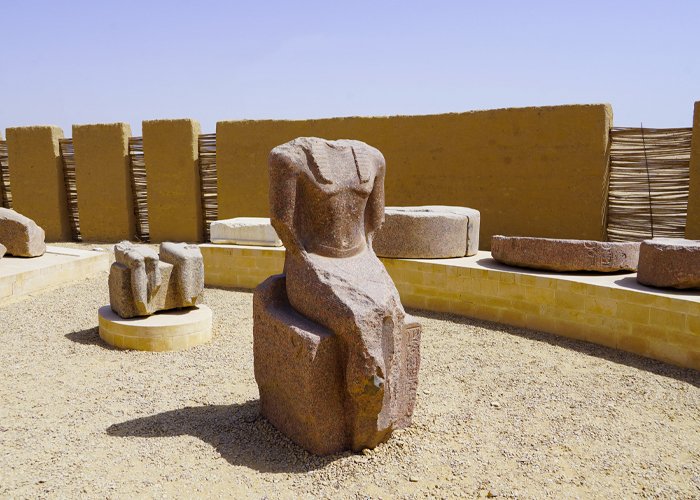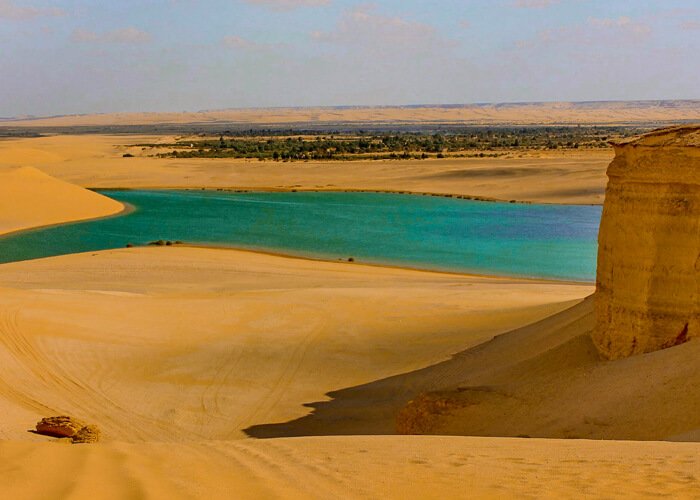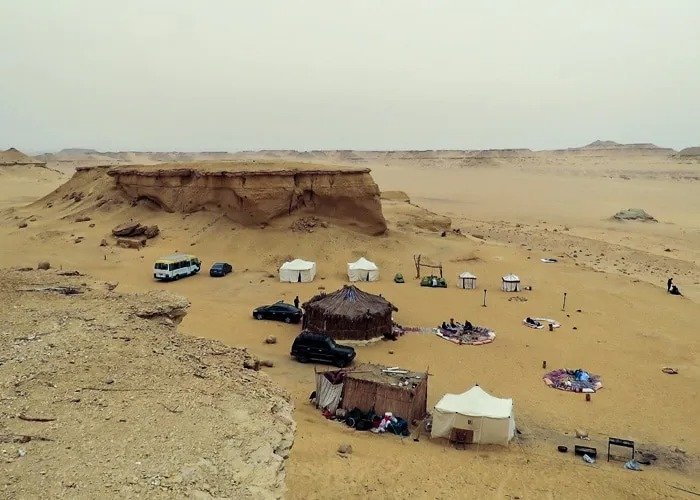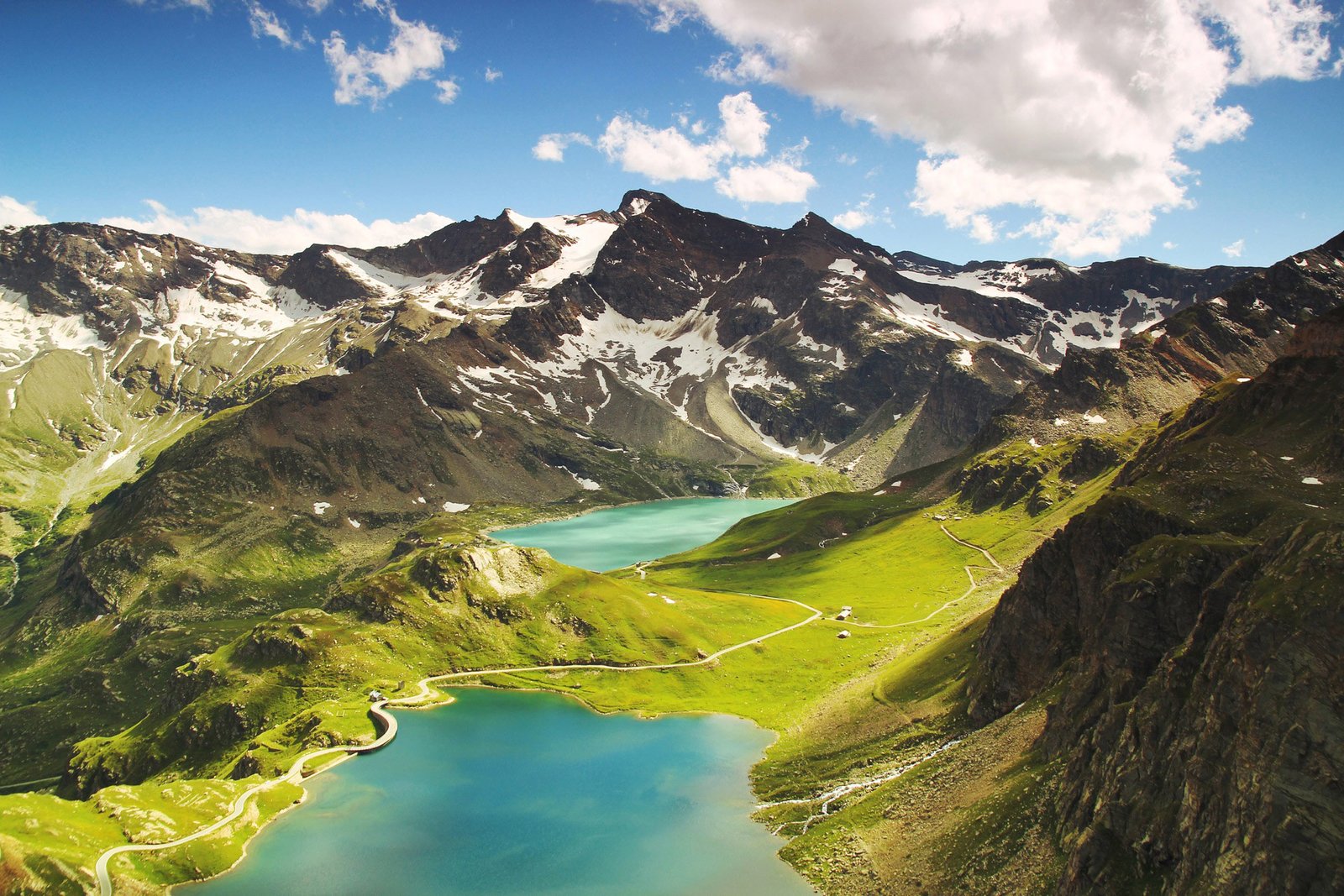Fayoum Oasis: Egypt’s Serene Desert Escape Close to Cairo
Fayoum Oasis is a tranquil paradise tucked away southwest of Cairo, making it one of the easiest oases to reach for both international visitors and local explorers. Its unique landscape combines desert dunes, fertile farmland, salt lakes, and archaeological treasures—offering something for every type of traveler in 2025.
This ancient depression, formed by a branch of the Nile thousands of years ago, still thrives today with vibrant village life, stunning nature reserves, and cultural landmarks. If you’re seeking a mix of serenity and discovery far from Egypt’s urban chaos, Fayoum delivers in every way.
Lake Qarun: One of Egypt’s Oldest Natural Lakes
At the heart of the Fayoum Oasis lies Lake Qarun, a vast saltwater lake with historical and ecological importance. Once part of a larger freshwater system in ancient times, today the lake supports a diverse ecosystem that attracts thousands of migratory birds.
For birdwatchers, 2025 is a prime year to visit as seasonal flocks of flamingos, herons, and egrets gather along the lake’s edges. Local fishermen still use traditional methods, and visitors can take boat rides or enjoy lakeside picnics with views stretching over shimmering waters.

Wadi El Rayan: Egypt’s Natural Wonder
Just south of the lake, Wadi El Rayan stands out as one of Egypt’s most spectacular nature reserves. The area includes two man-made lakes and the country’s only waterfalls, cascading dramatically amid the desert landscape.
This spot is ideal for nature lovers and photographers. Whether you hike the surrounding hills, kayak on the upper lake, or relax by the cascading water in the lower basin, the experience is both calming and invigorating. In 2025, visitor facilities have improved, making this attraction more accessible and eco-friendly.
Wadi El Hitan: Fossilized Secrets of the Deep Past
Within the Wadi El Rayan reserve lies another globally significant site: Wadi El Hitan (Valley of the Whales). This UNESCO World Heritage Site showcases fossilized skeletons of early whales and sea creatures that roamed this region 40 million years ago when it was still a shallow sea.
A guided visit here in 2025 includes access to a visitor center with detailed exhibits and a marked fossil trail where you can walk among the remains of ancient marine life. It’s a favorite destination for geology enthusiasts, paleontologists, and families with curious kids.
Tunis Village: Cultural Heart of Fayoum
Tunis Village is a picturesque lakeside community that has become synonymous with art and pottery. In recent decades, it has developed into a cultural hub, where visitors can engage with local artisans, take pottery classes, and shop for handcrafted ceramics.
In 2025, the village hosts regular craft festivals and workshops, attracting both Egyptian and international artists. With its peaceful gardens, rustic lodges, and welcoming spirit, Tunis Village is a must-visit for travelers wanting to connect with authentic Egyptian craftsmanship.

Desert Adventures and Eco-Tourism in Fayoum
For those seeking desert thrills, Fayoum doesn’t disappoint. Sandboarding down the rolling dunes of Qatrani Mountain, camel trekking at sunset, and 4×4 desert safaris are just a few of the adrenaline-filled activities available.
The surrounding desert is also home to rare plant species and desert wildlife, including foxes and fennecs. Responsible desert exploration is growing in popularity in 2025, with eco-tour companies offering guided tours that focus on conservation and cultural respect.
Archaeological Riches: From Pharaohs to Greco-Roman Remains
Fayoum’s history spans multiple eras, from the Middle Kingdom of Ancient Egypt to the Greco-Roman period. Sites like Hawara Pyramid, built by Pharaoh Amenemhat III, and the ruins of Karanis offer deep historical insights for travelers intrigued by Egypt’s less-famous antiquities.
These ruins often lie in tranquil surroundings with few crowds, giving visitors a more personal and immersive experience compared to Egypt’s major archaeological hotspots. In 2025, conservation efforts continue to make these sites more visitor-friendly while preserving their authenticity.
Village Life and Local Markets
Beyond major landmarks, the charm of Fayoum lies in its everyday life. From traditional open-air markets filled with dates, olives, and fresh vegetables to local cafés serving mint tea and homemade bread, the oasis reflects a slower pace of life.
Travelers in 2025 can stay in village eco-lodges and participate in farm stays that support local families. It’s a growing movement in responsible tourism that allows deeper cultural exchange and supports sustainable development in the region.
Best Time to Visit Fayoum in 2025
The ideal months are October through April when the weather is mild and comfortable. Summer can be hot but still manageable due to Fayoum’s proximity to Cairo and shorter travel times.
Events such as the Tunis Village Pottery Festival (usually in November) offer a festive atmosphere and unique souvenir shopping opportunities. Weekends tend to be livelier, especially with Egyptian families enjoying day trips.
How to Reach Fayoum
- By Car: 1.5 to 2 hours from Cairo by private car or taxi.
- By Bus: Regular buses depart from Cairo’s Turgoman Station to Fayoum city.
- By Tour: Several day-trip tours include guided visits to Wadi El Rayan, Tunis Village, and Wadi El Hitan.
Whether you plan a day trip or stay overnight, travel options in 2025 are varied and convenient.

Where to Stay
Fayoum offers accommodation for every type of traveler—from boutique hotels and eco-lodges in Tunis Village to desert camps near Wadi El Rayan. Many lodges emphasize sustainability and offer unique experiences like stargazing, traditional cooking, or guided nature walks.
What to Pack
- Light layers for warm days and cool evenings
- Comfortable walking shoes and sandals
- Hat, sunscreen, and sunglasses
- Camera or smartphone for capturing landscapes
- Reusable water bottle and light snacks
Nearby Places to Combine With Fayoum
- Cairo: Easily accessible and a great start or end point for your Egyptian journey.
- Beni Suef: For those interested in local industries and Nile-side culture.
- Wadi El Natrun: Known for its historic monasteries and Coptic heritage.
Adding Fayoum to your 2025 itinerary is an easy way to experience Egypt’s countryside and natural beauty while staying close to major cities.
Sustainable Travel Tips
- Book accommodations and tours with local providers.
- Avoid single-use plastics.
- Respect cultural norms, especially in rural villages.
- Don’t remove natural or historical artifacts.
Why Fayoum Oasis Should Be On Your 2025 Travel Bucket List
Fayoum Oasis is a place where nature, heritage, and culture live in harmony. Its combination of landscapes, wildlife, local artistry, and ancient wonders make it an unforgettable destination for travelers looking to experience a different side of Egypt.
As interest in authentic, off-the-path travel grows in 2025, Fayoum stands out as an enriching alternative to Egypt’s more touristic sites. Whether you’re a nature photographer, a history lover, or a family seeking a peaceful retreat, Fayoum offers a refreshing and memorable escape.




